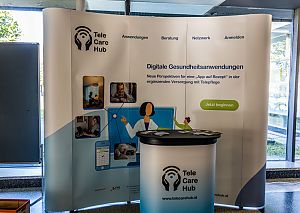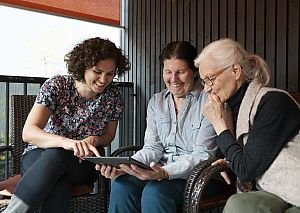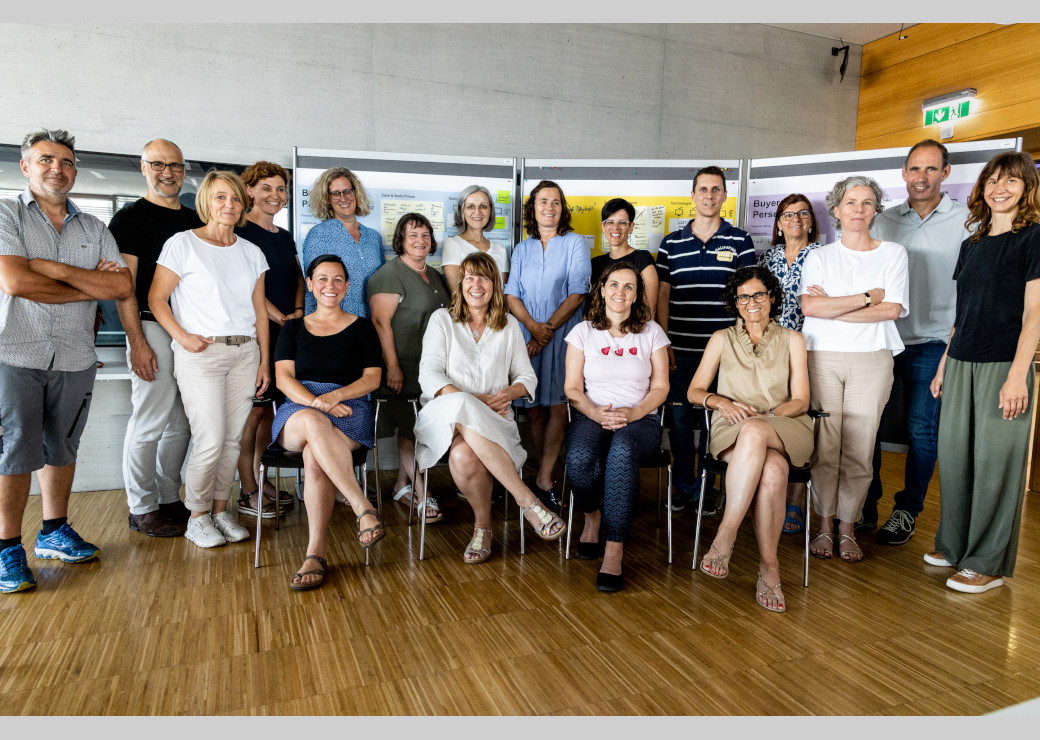TeleCareHub
Short Description
Connected technology for a good life with dementia
The TeleCareHub project identifies the potential for relief provided by remote care and offers web-based solutions for care at home: the Telecare app aims to identify needs at an early stage and provide support with daily activities.
Identify challenges, offer user-oriented help
Many of those active in Austria's healthcare landscape are doing good work. There is a wide range of services on offer aimed at relieving the strain of caring for people with dementia. Nevertheless, not all sections of the population are making adequate use of the help and support at an early stage. This is due to a lack of knowledge about analogue and digital services, uncertainty about the quality of digital services, as well as language barriers that make it more difficult to access support services.
The TeleCareHub meets these challenges with technology-enhanced services that are focused around the user, evidence-based and culturally sensitive: remote systems should be clear, understandable and easier to use for everyone in Austria. Add-on modules are also being considered for other providers of remote care systems, such as early diagnosis based on daily structural data and intelligent decision-making algorithms for interventions.

A multi-centre study was launched in December 2022 in the federal states of Tyrol, Salzburg, Carinthia and Vorarlberg, with the aim of recording the care and stress-related factors as well as the options for technical support from the perspective of people with incipient dementia and their carers as well as from the perspective of professionals. Recommendations for relieving the strain on informal carers and care providers as well as recommendations for reducing distrust towards ICT solutions are derived from the findings from care research.
Telecare solutions aim to help reduce the strain on informal carers and care providers and improve their health-related quality of life. For people living with dementia, the aim is to reduce their abnormal behaviours as a dimension of their quality of life and to prolong the time until full inpatient care is required. A two-year field study aims to demonstrate the impact on the health and quality of life of those affected.

A certified "app on prescription"
Looking to the future, the goal for telecare in Austria is to achieve a certified "app on prescription". The consortium is in the process of developing a digital health application and preparing it for certification as a medical device: the app integrates existing telecare systems (e.g. video consultation, reminder and call systems) and supplements them on the level of the user interface to include features aimed at end-users, such as transmitting information to target groups and demonstrations of efficacy for clients.
Publications
Brochure: Digital Technologies (2024)

Ready for the Future: Smart, Green and Visionary. Project Highlights of the Years 2016 to 2021.
FFG: Olaf Hartmann, Anita Hipfinger, Peter Kerschl
Publisher: Federal Ministry for Climate Action, Environment, Energy, Mobility, Innovation, and Technology
English, 72 Seiten
Publication Downloads
Project Partners
Consortium leader
FHV Vorarlberg University of Applied Sciences
Additional consortium partners
- connexia – Gesellschaft für Gesundheit und Pflege gem. GmbH
- Diakonie de La Tour gemeinnützige Betriebsgesellschaft m.b.H.
- ESD – Evaluation Software Development GmbH
- Fachhochschule Kärnten – gemeinnützige Privatstiftung
- FAWO GmbH
- Intefox GmbH, Salzburg Research Forschungsgesellschaft m.b.H.
- Tirol Kliniken GmbH
- Universität Innsbruck Institut für Psychologie
- Zentrum für Migrantinnen und Migranten in Tirol (ZeMiT)

